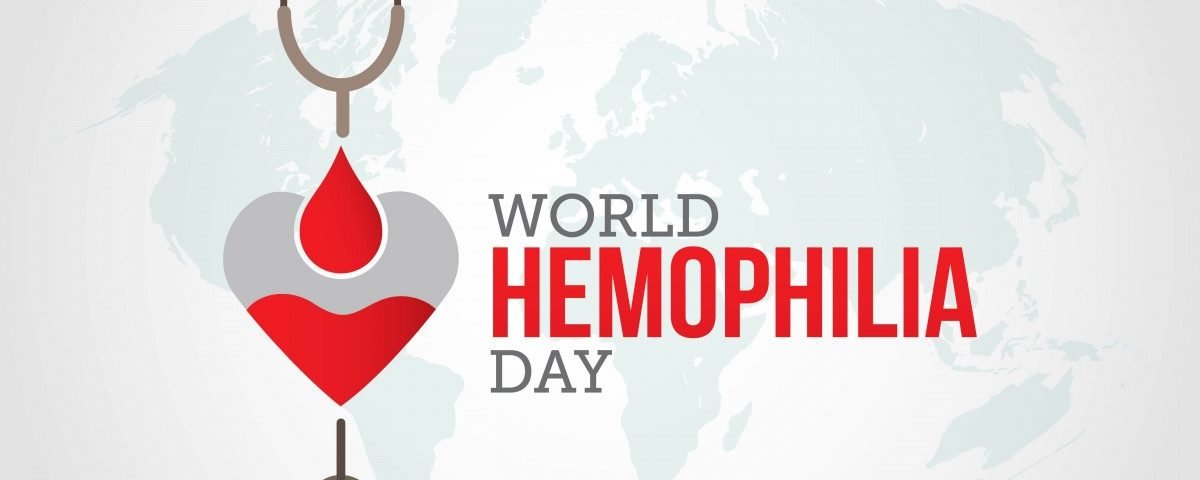Know more about Bleeding Disorders this World Hemophilia Day
431 viewsOn 17th April, the world is going to observe World Hemophilia Day. It was the initiative taken by the World Federation of Hemophilia (WFH) in 1989 to bring the communities together in order to commemorate the birthday of WFH’s founder Frank Schnabel.
One in 1000 people in the world has a bleeding disorder every year. Are you one of them?
Through this blog, we attempt to make you aware of how bleeding disorders might take a toll on your health, how to stay cautious and how to diagnose the problem.
What is hemophilia?
Hemophilia is a mostly inherited genetic disorder in which the blood does not clot naturally. When blood does not clot properly, excessive bleeding occurs after any injury or damage. It can happen to any person regardless of age, though it mostly affects men.
It’s interesting to note that men with hemophilia will pass the gene on to their daughters but not their sons. On the other side, women carrying the gene can pass it on to their sons as well as daughters. Sons with the gene are more likely to develop hemophilia.
People with hemophilia lack a protein called the clotting factor, which works with platelets to stop bleeding at the site of an injury. As a result, the person tends to bleed for a long time after an injury, and they are more susceptible to internal bleeding. This bleeding can be fatal if it occurs within a vital organ such as the brain.
Types of hemophilia:
There are two major types of hemophilia- type A and type B.
- Hemophilia A accounts for about 80 percent of hemophilia cases. In this case, a person lacks the clotting factor VIII. About seventy percent of people with hemophilia A have the severe form.
- In hemophilia B, also known as “Christmas disease,” a person lacks the clotting factor IX. This type of hemophilia affects around one in every 20,000 males worldwide.
To determine whether you are the patient of hemophilia A or B, talk to your expert at Regency Medical Centre and take immediate precautions.
Symptoms of hemophilia:
The followings symptoms will help you come to know whether you are suffering from this serious disease. The symptoms are:
- Internal or external bleeding
- Any wound, cut, bite, or dental injury can lead to excessive external bleeding
- Bleeding for a long time
- Blood in the urine or stools
- Bleeding within joints, like knees and elbows, causing them to become swollen, hot to the touch, and painful to move
Symptoms of brain bleeding can include headaches, vomiting, lethargy, behavioral changes, clumsiness, vision problems, paralysis, and seizures.
How to diagnose the problem:
Checking medical history and blood tests are the two most effective ways to diagnose hemophilia.
Before going for a physical examination, you need to provide your family history and personal medical record to your physician to know whether you have hemophilia.
Blood test results can identify the type of hemophilia and its severity. It can also provide information about how long it takes for the blood to clot and the levels of clotting factors.
If you are a pregnant woman and carrying hemophilia, doctors will test the fetus for the condition after 10 weeks of pregnancy.
How to treat a patient with hemophilia:
One of the effective ways of treating this severe disease is replacement therapy, where your physicians give you an injection to replenish the excessively low clotting factors.
Clotting factor treatments for replacement therapy can be derived from the blood, or they can be synthetically produced in a laboratory.
Some patients need regular replacement therapy in order to prevent bleeding. This is typically recommended for the patients of hemophilia A.
If treatment is delayed, joints, muscles, and other body parts of your body might be seriously affected.
At Regency Medical Centre, our doctors might recommend the following medications, after assessing your medical record and family history:
- Regular infusions of clotting factor
- First aid for minor cuts like pressure and bandage, an ice pack on the skin or ice pops in case of bleeding in the mouth.
- Vaccinations against hepatitis A and B to prevent blood-borne infections such as Hepatitis
Our well-experienced doctors and innovative medical equipment will lessen the possible risk of hemophilia, thereby removing your anxiety.
Don’t worry. This World Hemophilia Day, talk to our expert without any hesitation. As the saying goes, prevention is better than cure. Get yourself tested to ensure that neither you nor your children have this disorder. At Regency Medical Centre, we strongly believe in helping you remain fit and healthy always.

